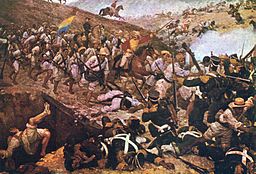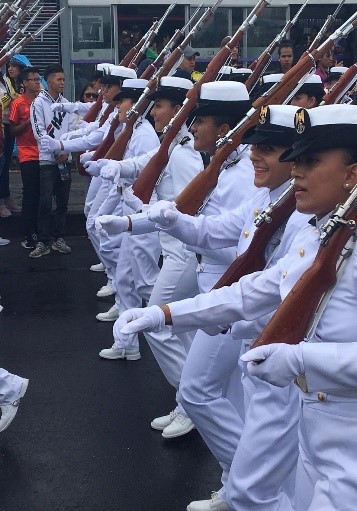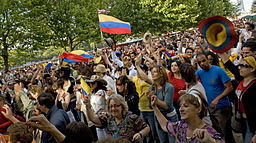Independence Day – 20th July
Colombian Independence Day is celebrated each year on 20th July. It is a public holiday and commemorates events that took place in 1810, in what was then the colonial capital of Santa Fé de Bogotá. Today Bogotá is a city with 11 million inhabitants and it is the capital of the Republic of Colombia. Spanish conquistadors had claimed Colombia for the Spanish crown in the early 16th century. By 1810 Spanish colonial authority had weakened due to the Napoleonic wars in Europe.

On 20 July 1810, local people (“criollos”), born in what was then known as the Viceroyalty of Nueva Granada, held a meeting with the Spanish Viceroy, Antonio José Amar y Borbon, with a request to form a Junta to govern the colonial capital. This was rejected. In response the criollos requested a wealthy merchant, aligned to the colonial government, to loan an expensive ceremonial vase for a dinner to be hosted by them. This was also refused. In response the criollos publicly smashed the vase to symbolise their rejection of Spanish colonial rule and to incite the people to rise up in revolt.

On the same day a Junta was formed and shortly thereafter ties with Spanish authority were formally broken. Under the leadership of Simon Bolivar and Francisco Paula de Santander, a long struggle for independence was waged. Spanish forces in Latin America were eventually defeated and in 1819, the independent Republic of Gran Colombia (today, Colombia, Ecuador, Panama and Venezuela) was proclaimed.
Today, Independence Day is celebrated every year with military parades and historic re-enactments. Colombians turn out in large numbers to watch and enjoy their freedom and liberty. Crowds mingle, there is music, food and dancing.

While Colombia is one country, there are many regional variations in culture, food and music. From “arepas” (flat corn bread), a daily staple in the Andean highlands, to abundant fruits and fried fish along the Caribbean and Pacific coasts, to barbequed beef ribs in the vast eastern plains (“Los Llanos”), Colombia is a country of great geographic and natural diversity. Music is a blend of the traditional and modern, including “vallenato” (using the accordion), “cumbia” folk music, “salsa” dance music and coastal “champeta”, Caribbean and Afro-Colombian beats, with their origins from slaves imported during the colonial period, to more modern hip-hop, reggaeton and latin.
Alba
Watch a short video about vallenato music below
